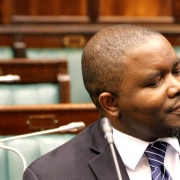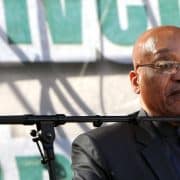|
Getting your Trinity Audio player ready...
|
As Chief Justice Mogoeng Mogoeng read out what has been termed the “Nkandla judgment” on Thursday last week, South Africans took to social media to celebrate the message in his ruling: the Constitution of the country is the paramount law of the country, and President Jacob Zuma – for having breached it – was in the wrong. For restoring the hope of South Africans in the judiciary, we make Concourt our hero for the week.
It seemed to be the only thing South Africans talked about from Thursday morning when Mogoeng started reading the judgment, throughout the day, and even as Zuma addressed the nation on Friday evening in response to the judgment.
A lot has happened since then, with plenty of air play and newspaper space given to those who wish to share their views on the matter. From angry South Africans who appeal to the president to step down as a matter of principle, to those who see the rationale of letting the politics involved play themselves out, this is an issue of utmost importance in the country’s democratic journey and can surely not be ignored.
Mogoeng, in his delivery, was precise and adamant that Zuma failed to uphold his Constitutional obligations by refusing to acknowledge Public Protector Thuli Madonsela’s remedial action as binding with regard to Nkandla. Madonsela had recommended that Zuma reimburse the state a portion of the money spent on his private home in KwaZulu-Natal.
“The Public Protector’s report was submitted not only to the President, but also to the National Assembly presumably to facilitate compliance with the remedial action in line with its constitutional obligations to hold the President accountable,” Mogoeng said. “The report of the Minister of Police and the resolution of the National Assembly that sought to absolve the President of liability must be declared inconsistent with the Constitution and invalid…”
In his response to the ruling, Zuma said: “I wish to emphasise that I never knowingly or deliberately set out to violate the Constitution, which is the supreme law of the Republic.”
But Mogoeng had already delivered the punch that showed how the president’s position of power was indeed a determining factor in what processes were to be followed in building Nkandla: “…there is thus a direct connection between the position of President and the reasonably foreseeable ease with which the specified non-security features, asked for or not, were installed at the private residence.”
Zuma last Friday said he respects the finding by Concourt that his failure to comply with the remedial action taken against him by Madonsela is inconsistent with the Constitution. It is with this wording as ammunition, however, that members of the ANC in Parliament defended Zuma during Tuesday’s debate on motion to impeach him. The party’s chief whip, Jackson Mthembu, told broadcaster eNCA that said he believed Zuma was sincere. He added that the party believed in the president’s apology and thus supports him. Mthembu said Parliament would ensure that the court’s findings were implemented timeously.
Since then the ruling party has used much evasive word play to try to persuade citizens that Zuma had not actually violated the Constitution because the ConCourt never said it in those exact words. But constitutional law expert Prof Pierre de Vos commented on his website: “Whenever a party acts in breach of (or violates) the Constitution the Court uses a technical phrase (‘inconsistent with the Constitution’) because this is the phrase contained in section 172 of the Constitution.
“If the Court finds that you acted inconsistently with a constitutional provision, it finds that you are in breach of it/ violating it/ abusing it/ contravening it/ encroaching upon it/ guilty of an infraction of its provisions/ infringing on it/ transgressing it/ trespassing upon it. Only a person unaware of the existence of synonyms would genuinely believe that these phrases are not identical.”
The ConCourt, too, did not mince words in its judgment. “After endorsing the report by the [police] Minister exonerating the president from liability and a report to the same effect by its last Ad Hoc Committee, the National Assembly resolved to absolve the President of all liability. Consequently, the President did not comply with the remedial action taken by the Public Protector,” said Mogoeng.







